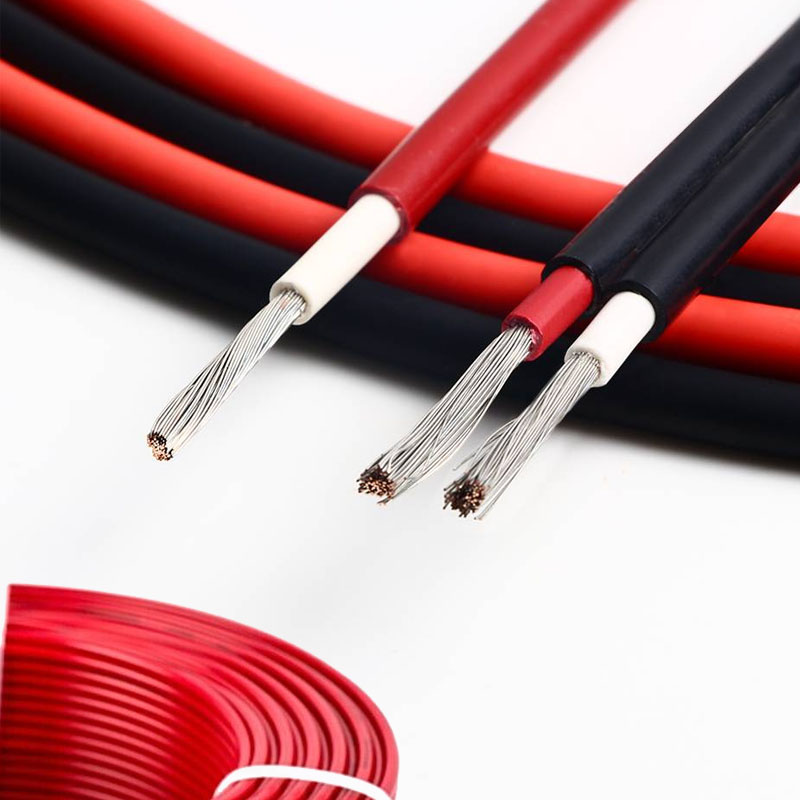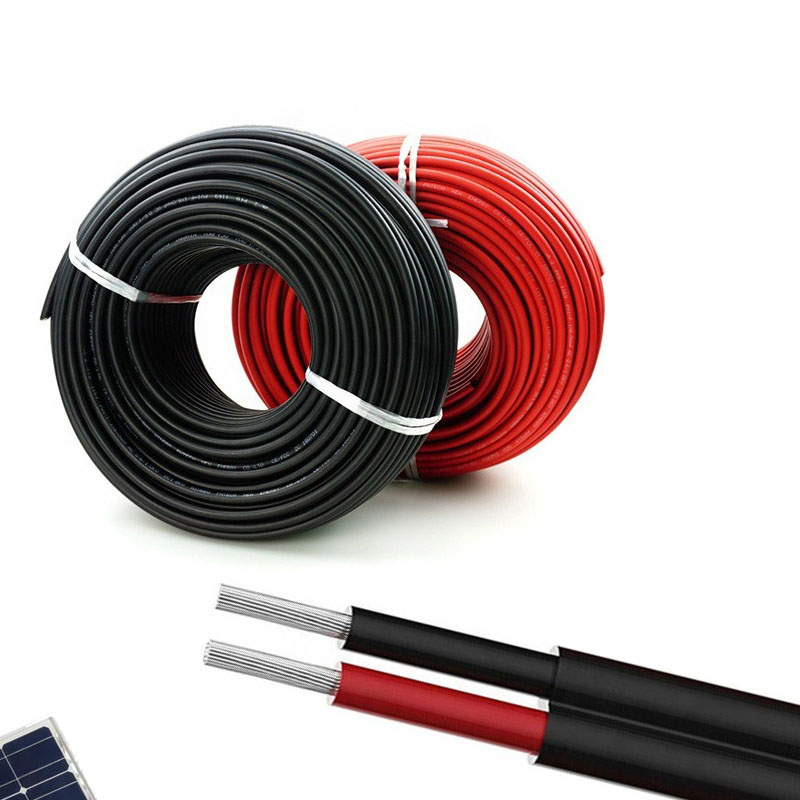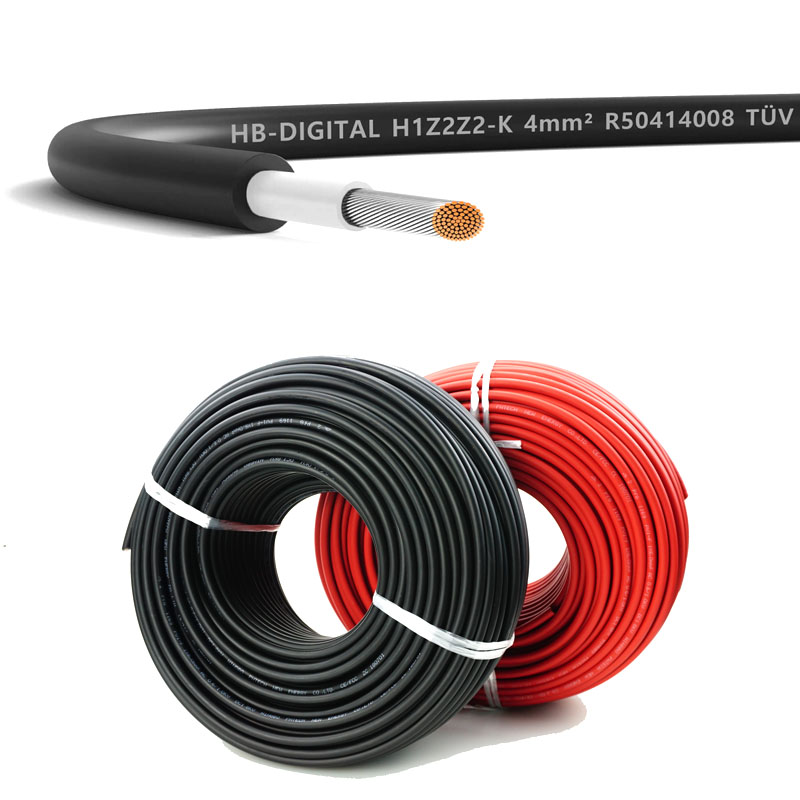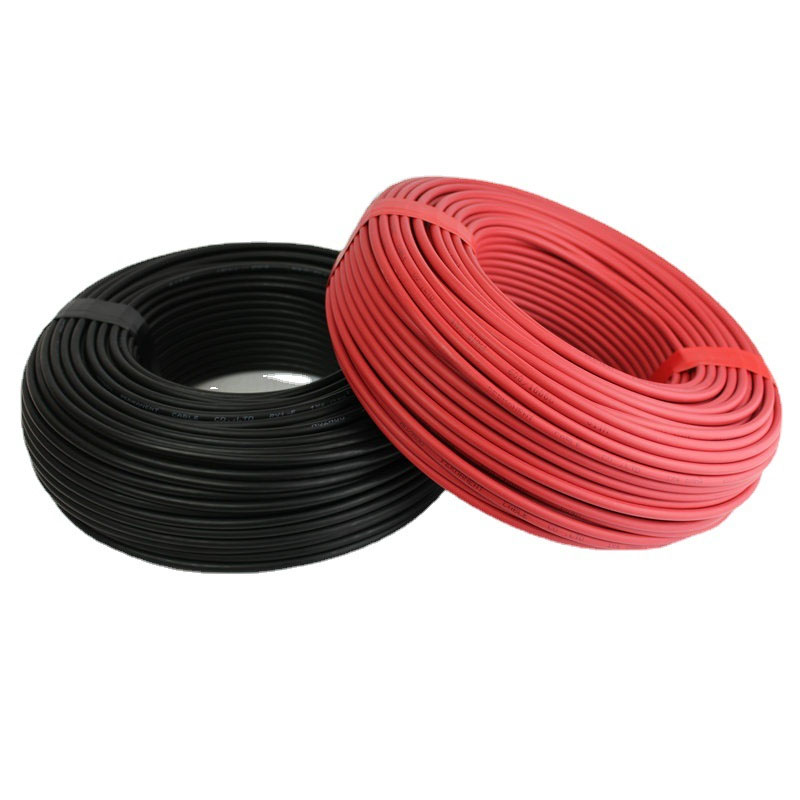फोटोभोल्टिक केबल
What Is The Difference Between Pv Wire And Regular Wire?
The primary difference between PV wire and regular wire lies in their specific design and intended use:
PV Wire (Photovoltaic Wire):
- PV wire, also known as photovoltaic wire, is specifically designed for use in solar power systems, including solar panels, photovoltaic arrays, and solar energy installations.
- It is constructed with materials that provide resistance to ultraviolet (UV) radiation, extreme temperatures, and environmental factors commonly encountered in outdoor solar installations.
- PV wire is typically rated for direct current (DC) applications and is designed to meet industry standards and regulations specific to solar power systems.
Regular Wire:
- Regular wire, or general-purpose wire, refers to standard electrical wire used for a wide range of electrical wiring applications in residential, commercial, and industrial settings.
- It is designed for general electrical wiring, power distribution, lighting, and other electrical applications, and may be used in various indoor and outdoor environments.
- Regular wire is available in different types, such as THHN (thermoplastic high heat-resistant nylon-coated), NM (non-metallic sheathed cable), and other types designed for specific applications and environments.
What Is A Photovoltaic Cable?
A photovoltaic cable, often referred to as PV cable, is a specialized type of electrical cable designed for use in photovoltaic (PV) systems, particularly in solar power installations. PV cables are specifically engineered to meet the unique requirements of solar energy applications, providing the necessary electrical connectivity for solar panels, inverters, and other components of solar power systems.
Key features and uses of photovoltaic cables include:
1. Solar Power Systems: PV cables are used to interconnect solar panels, linking them to combiner boxes, inverters, charge controllers, and other components within a solar energy system.
2. UV Resistance: PV cables are constructed with materials that provide resistance to ultraviolet (UV) radiation, ensuring durability and longevity in outdoor solar installations.
3. Weather Resistance: These cables are designed to withstand exposure to environmental factors such as temperature variations, moisture, and harsh weather conditions, making them suitable for outdoor use.
4. Flexibility and Durability: PV cables are engineered to be flexible and durable, allowing for easy installation and reliable performance in solar power applications.
5. Compliance with Standards: PV cables are manufactured to meet industry standards and regulations specific to photovoltaic systems, ensuring safety and performance in solar energy installations.
In summary, photovoltaic cables are tailored for use in solar power systems, providing the necessary electrical connectivity while offering resistance to UV radiation, weather conditions, and other environmental factors commonly encountered in solar energy applications.












